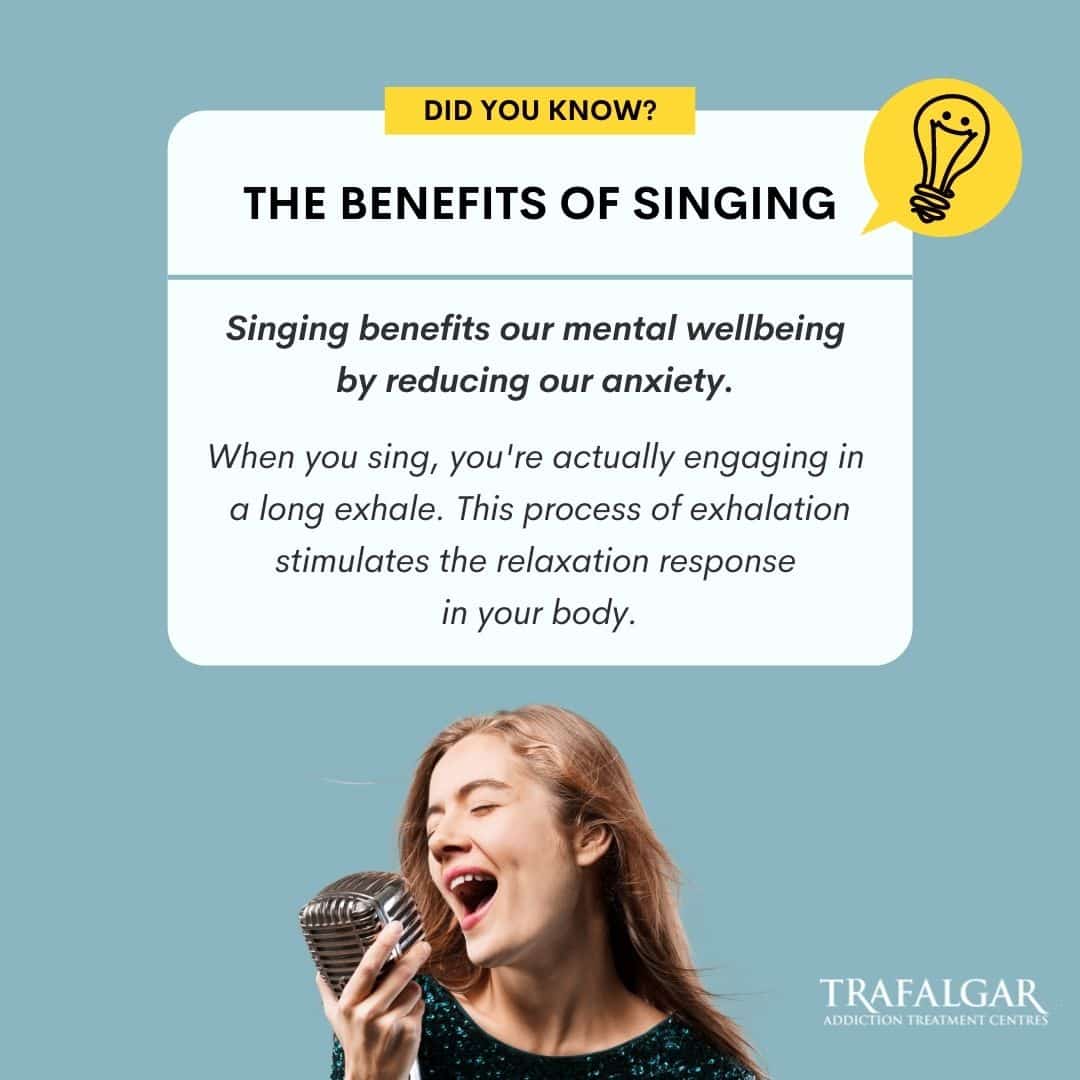
By Trafalgar’s Editorial Team
This Content is Created By Kinga Burjan, M.A., R.P.
General Coping Skills: The Benefits of Singing
Hi there, thank you for joining me on your wellness journey on today’s segment of “did you know”. We’re going to look at the benefits of singing. My name is Kinga Burjan and I’m a registered psychotherapist with Trafalgar Addiction Treatment Centers.
There are lots of studies that indicate the positive benefits of singing.
So one main area that’s singing benefits us in the mental health department is reducing our anxiety. When you sing, if you think about it, you’re actually engaging in a long exhale. And it’s this process of exhalation that stimulates the relaxation response in your body. Another way that singing lowers your stress levels is by helping to release your muscles tension and decrease the levels of cortisol in the body, which is a stress hormone.
Singing, because your focus on one act in the present moment can be an act of mindfulness. So by focusing and choosing to be focused on your breath, the music, the lyrics, you’re helping train your mind to not get distracted by those outside influences or the internal ones. So say you had a busy day and you have a lot on your mind. If you’re able to take some time out of your day and focus on that one task, it can actually help relieve some of those ruminating thoughts or the stress that you might be carrying around in your mind.

Whether or not you’re a good singer, how do you feel after you sing, just take a moment and notice if you sing in the car or in the shower or just a random song came into your head and you started singing were you smiling. Did it lift your mood? So it’s always good to take note of what during your day affects you and in what way. So this is one little tidbit of self-awareness that you can look at throughout the day to see if singing actually does affect your mood in some way.
So did you know that there’s actually a group or more than one group, an organization through Alzheimer’s Society in Europe for singing for the brain? So this is a service that helps people with dementia and Alzheimer’s maintain their memories. So there are studies that show singing improves mental alertness, memory and concentration, as well as improving blood circulation. So this increase in blood circulation and oxygenation in the blood allows for more oxygen to reach the brain. Very cool.
There are also studies that show the added benefits of joining a choir, so in addition to the benefits I just mentioned about singing, going to weekly choir rehearsals offers a space for that social connection and social bonding. Many people report having pride themselves and in their community that they’re able to connect on this level and create music together. Also, results can be feelings of confidence and feelings of self-satisfaction, as well as feeling like you’re part of something bigger than you. So this feeling can help minimize some of the problems that might seem really big in our life. When we’re put in a situation where we have to work as a community and a team and look at the big picture, it creates that distance and separation from things in your life that might seem big but are actually small.
So going to choir practice is one way to regularly commit to a beneficial routine or have it for yourself that will benefit your mental and physical health as well as provide social connectivity. So if you were thinking about joining a choir and there’s one in the area or something that you’re interested in, why not?
So be safe out there, take care of yourselves. And I hope this gave you some food for thought and enjoy singing because it’s something that you can have access to and do for free that will positively benefit your mental and physical health.






